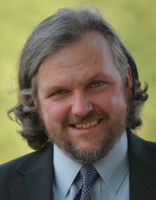Every few years, the World Psychiatric Association holds a World Congress. The WPA has invited MindFreedom International executive director David W. Oaks to be a “special presenter” at the Congress, which is in September 2008 in Prague.
UPDATE:
http://ki-art-multimedia.de/dresden/dresden.htm
A follow-up to Dresden was an invitation by the World Psychiatric Association to speak at their World Congress in Prague:
Here is the title and abstract of the successful talk by David Oaks, Director of MindFreedom International, gave at the World Congress of the World Psychiatric Association:
World Congress of Psychiatry
Document ID: WCP4323
MindFreedom International, Eugene, United States
David W. Oaks, oaks@mindfreedom.org
Topic: Ethics in psychiatry
Title: AN URGENT NEED FOR DIALOGUE ABOUT A “GLOBAL EMERGENCY” OF HUMAN RIGHTS VIOLATIONS IN MENTAL HEALTH CARE
Abstract Body: The point of view of individuals who have experienced human rights violations in mental health care, and the organizations that represent us, need to be heard by psychiatric professional organizations. Mediated dialogue must be encouraged between groups representing psychiatric survivors and groups representing mental health professionals.
We are not alone. Dr. Benedetto Saraceno, Director of the Department of Mental Health and Substance Dependence at the World Health Organization (WHO), has stated, “The violation of human rights of … psychiatric services users and the recognition of their role and rights as citizens are a main concern for WHO. WHO thinks that no treatment can be credibly provided in a context which systematically violates human rights. There is a global emergency for the human rights of people suffering from mental health problems. I insist on the word ‘global’ as people tend to believe that these kinds of violations always occur somewhere else when, in fact, they occur everywhere.”
Certain human rights controversies are especially pressing, such as involuntary electroconvulsive therapy (ECT) against the expressed wishes of the subject, and long-term, high-dosage coerced administration of neuroleptic psychiatric drugs.
In a broader sense, though, if a family with a member in severe crisis is primarily offered psychiatric drugs, when non-drug approaches can work, this too is a kind of coercion. I respect an individual’s right to take prescribed psychiatric drugs. However, being offered only one choice is not really a choice at all. Creating more non-drug voluntary alternatives has become a human rights concern.
Here is a link to the bio about David W. Oaks on the World Psychiatric Association web site:
Document Actions


